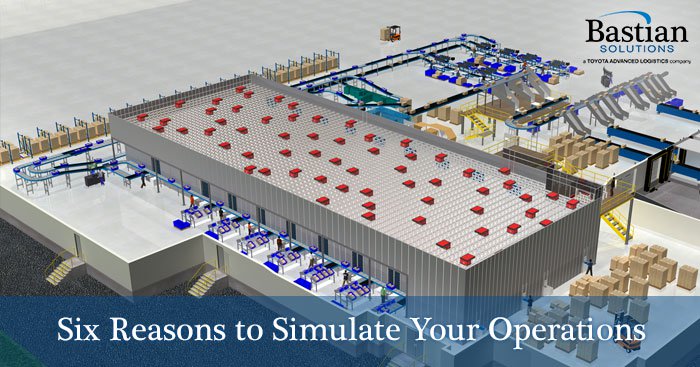
Six Reasons to Simulate Your Operations
Pablo Pozas | 26 February 2020
Are we living in a simulation?
You might have been following a recent surge in advocacy for the “simulation theory,” famously championed by the ever-outspoken Elon Musk. Its proponents believe that the reality we live in is, in fact, a computer simulation.
When confronted with this at-first absurd notion enough times, a tempered and judicious observer like yourself will likely wonder what the most reasonable course of action should be. How do I evaluate the merits of this hypothesis? What impact does it have on my life?
Before you dive into the Matrix to figure this out, you might first consider the most logical approach: simulate your manufacturing or warehousing environment, and then be best positioned to ponder this existential (or virtual?!?) postulation by wholly appreciating the breadth and value of this powerful tool.
While fortifying your grasp of the universe (and helping you determine the sanity of Elon’s brain), simulation will also provide you with the following practical benefits:
Six Reasons to Simulate
- Study the behavior of a system or a system component without building it, therefore keeping costs and risks at a minimum
- Intelligently use computer animation and dynamic dashboards to communicate insights that are meaningful and easy to understand
- Handle otherwise overwhelming complexity using a manageable, top-down approach
- Efficiently explore a myriad of “what-if” scenarios with experimentation in ways that would be impossible with mere observation
- Increase the accuracy of your analysis by capturing and coordinating more details than would be possible with a standard spreadsheet
- Own a model that can be flexibly modified and revisited into the future
What are the disadvantages, you ask? The learning curve is steep and demands significant effort… but that’s where we come in!
If you believe simulation can help address some of the challenges in your existing or upcoming manufacturing / warehousing environment, please reach out to the simulation experts at Bastian Solutions Consulting to best assist you in developing a model that will inform you on how to reach your goals.
If you believe we are living in a simulation, please reach out to the simulation experts at Bastian Solutions Consulting to show you the building blocks of reality as we know it.
Pablo is an Associate Consulting Engineer out of Chicago, IL. He has a B.S. degree in Industrial & Systems Engineering and a M.S. degree in Global Supply Chain Management from the University of Southern California. As part of Bastian Solutions’ Consulting team, his role focuses on the analysis of distribution systems and their optimization through the design of automated solutions.
Comments
No comments have been posted to this Blog Post
Leave a Reply
Your email address will not be published.
Comment
Thank you for your comment.